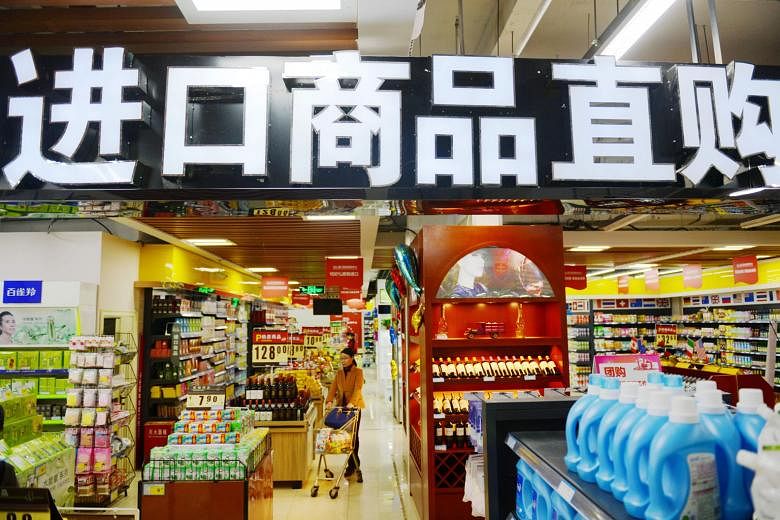China is tightening its grip on cross-border e-commerce, imposing a new tax system on imported items sold online amid a surging appetite for foreign goods.
But while tax rates for e-commerce sites and brick-and-mortar stores will be more in line, China's growing middle-class worries that the move means it will have to fork out more for overseas purchases such as baby care products, cosmetics and handbags.
"I'm still waiting to see what this all means for consumers like us, whether any increased cost will be passed down or if retailers will absorb it," said Ms Huang Lingling, 44, who has previously bought imported health supplements online.
"But ultimately... safety is most important so if the price hike is not too much, I'll continue with overseas purchases of items like health products because there's a certain guarantee of quality," the housewife told The Straits Times.
China's cross-border e-commerce sector grew more than 30 per cent last year. Total volume is expected to reach 6.5 trillion yuan (S$1.4 trillion) this year and will soon account for 20 per cent of the country's foreign trade, the Commerce Ministry said.
According to rules that kicked in last Friday, retail goods bought online will no longer be treated as postal articles subject to a parcel tax, but as imported goods liable for Customs duty, import value-added tax (VAT) and consumption tax. Rates vary depending on the type and value of goods.
The VAT and consumption taxes, however, will be levied at a 30 per cent discount to what wholesale importers pay if each purchase is below 2,000 yuan and the annual volume of transactions by an individual does not exceed 20,000 yuan.
Deals above the cap will be treated as commercial imports and consumers will not only forfeit the tax discounts but also be liable for Customs duties. Prices of popular imports like baby care products are likely to rise, while electrical appliances should be cheaper.
Luxury goods like jewellery, for instance, will be taxed an extra 9-17 per cent, while some taxes on personal hygiene products could fall since the changes rescind a previous heavier parcel tax.
Tighter border checks are also expected to make it harder for Chinese shoppers to bring in overseas goods with a value greater than the tax-free limit of 5,000 yuan.
E-commerce giant Alibaba said that lower-end items such as food and baby products will be subject to higher taxes after the change.
Experts say the new tax regime is likely to give China-made products a boost as Beijing attempts to fire up domestic consumption as a new engine of growth. It also serves as a growing contributor to government revenue amid a record fiscal deficit expected this year.
Mr Matthew Crabbe, research director at Mintel, said: "The new tax regime helps to protect consumers, reduces tax evasion and improves tax income. It also protects local products from unfair competition... This is positive for the market, longer term."
But the jury is still out as to how daigou services - or personal shoppers who go overseas and buy luxury items to sell back home - might be hit. Some say the increased Customs scrutiny is likely to put pressure on the practice, but others say the higher taxes on e-commerce sites will make these "smuggling services" even more in demand.
Esther Teo

